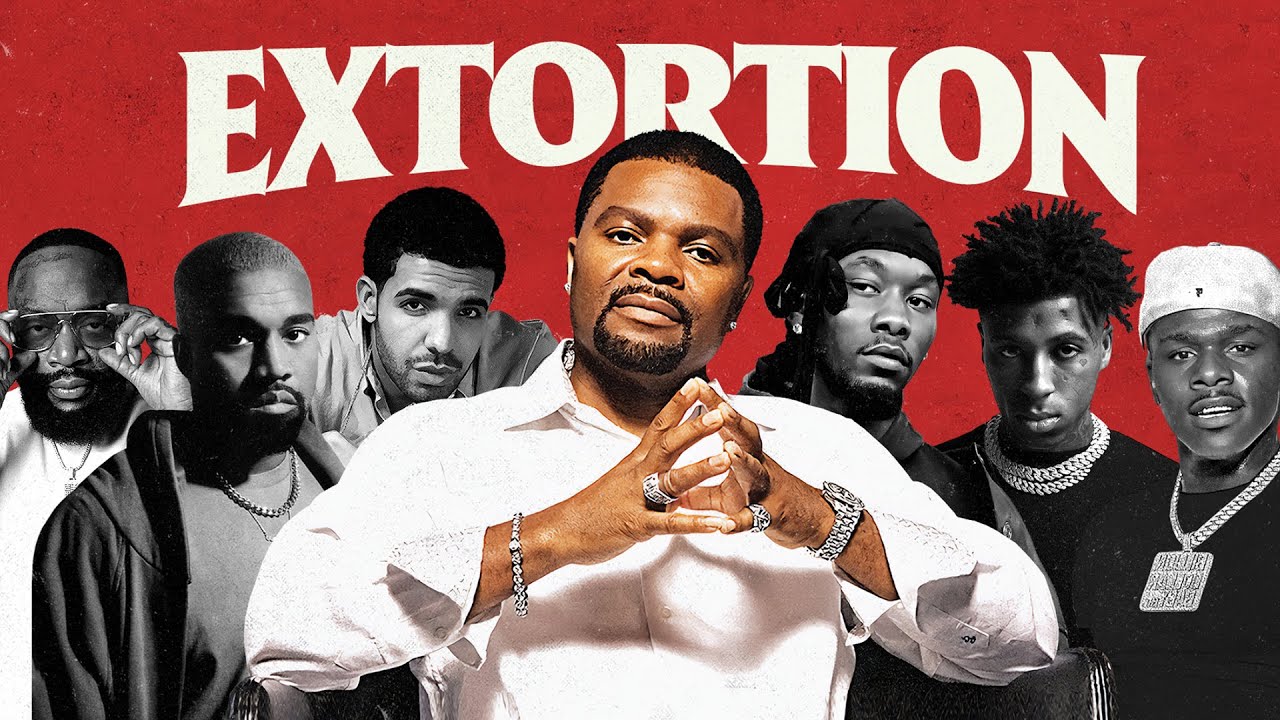The Evil Business Of Extortion In Hip Hop
Unleash Your Creative Genius with MuseMind: Your AI-Powered Content Creation Copilot. Try now! 🚀
In the world of hip-hop, where money and fame reign supreme, it's no surprise that the influence of organized crime can be found lurking in the shadows. From the early days of the Mafia to the modern-day street organizations, extortion has become an integral part of the hip-hop industry. In this article, we'll explore the infamous incidents where rappers have fallen victim to extortion, shedding light on a dark and often overlooked aspect of the music industry.
A Brief History of Extortion in Hip-Hop
The roots of extortion in hip-hop can be traced back to the early days of the Mafia in America. In cities like Chicago, New York, and Philadelphia, street organizations adopted the tactics of the Mafia, using extortion as a means to generate income. The practice of "checking in" became a common occurrence for street rappers, ensuring their safety and allowing them to freely navigate the city without fear of harm. While some may view it as unjust, it is seen as a necessary evil in a world where personal safety is often compromised.
Infamous Incidents of Rapper Extortion
Even the biggest names in hip-hop have not been immune to extortion. Take Kanye West, for example. During a trip to Philadelphia, Kanye found himself in a precarious situation and had to call upon the Broad Street Bully, Beanie Siegel, for assistance. The threat was real, with chairs pulled up to his table and a sense of impending danger. Thanks to Beanie's intervention, Kanye was able to navigate out of trouble unscathed.
Another notable incident occurred in Detroit, where the practice of checking in is taken to a whole new level. Trick Trick, the head of the Motor City's no-fly zone, ensures that anyone who enters his territory pays their respects. Rick Ross, a prominent rapper, learned this the hard way when his bag was stopped at a Summer Jam event in the city. The no-fly zone is a strict rule enforced to maintain respect for the city and its people.
The Baby's Encounter with Extortion
During a video shoot for his single "21" in East Atlanta, the Baby found himself confronted by a local gang who attempted to intimidate him for trespassing. However, the Baby's response was unexpected. Rather than succumbing to fear, he stood his ground and demanded respect. While the situation could have escalated, the Baby's confidence and refusal to back down diffused the tension.
The Complex Relationship Between Extortion and Hip-Hop
Extortion has always been a controversial topic in the hip-hop community. Some artists, like Joe Budden, view it as a necessary evil, likening it to paying estate taxes. They argue that artists make money in various cities without giving back, and checking in is a way to contribute to the communities they profit from. Others, like Vanilla Ice, see a silver lining in their experiences with extortion. Vanilla Ice believes that the money he unknowingly contributed to Suge Knight's Death Row Records went on to fund some of the greatest hip-hop music of our time.
The Power of J Prince and the Consequences of Defying Him
J Prince, often seen as the kingpin of hip-hop, is known for using intimidation to prevent conflicts before they arise. However, even he has faced setbacks in his attempts to control the industry. NBA YoungBoy, a rapper who refused to pay his respects to J Prince, found himself the target of an alleged extortion attempt. While the situation was resolved without any major consequences, it serves as a reminder of the power and reach of those involved in organized crime.
The Rise and Fall of

Related Recaps
- Cincinnati's Insane Comeback to Win a National Title | The Trevor Staub Show Episode 56
- [VN] 2023 PMSL SEA SPRING W1D3 | THE BATTLE IS UNRELENTING, WHO WILL BECOME THE KING?
- Best Reggae New Song 2023 💦 Oldies But Goodies Reggae Songs 2023 💦 Most Requested Reggae Songs 2023
- Meet the Press NOW – May 4
- Rangers' K'Andre Miller Snipes Goal In Final Second Of Regulation To Force OT vs. Stars